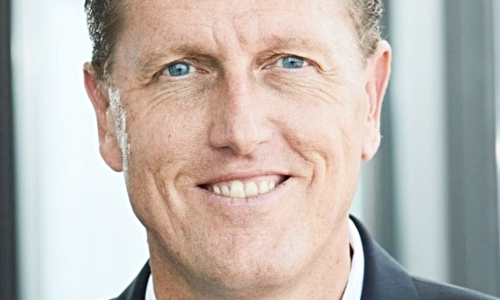Last year was so good for the consulting firm that it now leads the Swiss market. The financial sector plays an important role in that, says managing partner Gustav Baldinger in a conversation with finews.com.
Digital transformation, consolidation, regulation. What ends up giving executives headaches turns out to be a field day for consultants. That, at least, is clearly visible at Pricewaterhouse Coopers, one of the big four. Figures show that gross revenues rose by 30 percent in the financial year to June.
Guiding Growth
Its accountancy leg saw numbers rise by 10 percent, while the tax and legal advisory business were up 6 percent. That helped gross services income reach 1.1 billion francs, according to figures made available to finews.com.
«There were various drivers», indicates Gustav Baldinger (image below) about developments in recent months. The managing partner and head of the business consultancy practice at PWC Switzerland is seen as the architect of its recent growth spurt. During his watch, domestic economic growth was generally buoyant and many companies invested in digital transformation efforts and technology, particularly in Cloud-based applications.

(Image: PWC)
Crowd at the Top
The transaction business developed particularly well and it received many contracts as a result of regulatory impetus.
PWC ranked second in the Swiss market for a long time but it is now the market leader in all three areas although it is a claim that another big four consultancy, Deloitte, still believes it has a right to.
Client Growth
«We are clearly by far the largest when compared directly as a group in the areas of accounting and tax advice», Baldinger insists, having spent more than two decades working for PWC domestically. The advisory area has also been growing strongly, particularly in services for the financial sector, the managing partner added.
That adds up. Financial sector clients are the largest and most important segment for the consultancy in Switzerland as around a third of the business is generated from them. And one of the clients has generated a good deal of talk in recent times. Credit Suisse. PWC was the bank's external auditor and it provided comfort in the 2022 annual report that it remained a going concern. Shortly afterward, what was once Switzerland's second-largest bank was rescued by UBS in a government-prompted takeover.
Megabank Jam
Credit Suisse's collapse also puts PWC in a different position. «We will continue to audit it with the same level of detail and quality in 2023», Baldinger indicates. Because of this mandate, it is not in a position to offer consulting services. «We will only be able to offer UBS consultancy ideas during the course of 2024 when our mandate ends», Baldinger says.
Currently, Oliver Wyman. has the lead when it comes to the Credit Suisse integration, according to various media reports.
Noticeable Delay
But Baldinger and his work colleagues have other things up their sleeves. Growth in all areas of services is not the same. The market for business and tax consultancy is growing thanks to the Cloud, and the cyber and data sectors. There is also a demand for restructuring and regulatory compliance.
«We are seeing some delays in decision-making with strategic projects both internationally and in the middle market as well as a consolidation and splitting out of individual phases», he says. But there are also other contrasting developments. Some companies are accelerating their transformation efforts in order to be better prepared for the next growth cycle.
Artificial Intelligence Investment
Balidinger has high hopes for new technologies. «It is clear that new technologies like generative AI and cyber will penetrate all functions of enterprise and the big four massively.» He also sees clear opportunities for consulting work as companies will have to adjust and confront ethical issues in connection with generative AI.
PWC is not just trying to convince companies to make those kinds of investments. It is doing them as well. It wants to invest about 50 million francs in artificial intelligence over the next three years.




































